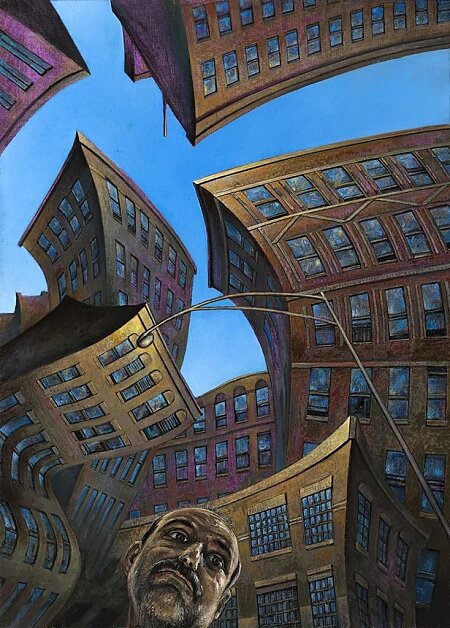
Elegy for a Sporting Goods Store
But it turned out Bud’s hubris, like that of everyone from Greek heroes to the athletes we watched on the small screen in the store each day, was both his gift and his downfall. When the dot-com boom hit and the public rushed to buy their gear online, he dismissed it as a fad. He made small concessions to modernization. He began ordering sneakers with color in them, violating the place’s decades-old policy of unflashy black-and-white thinking. He carried newer, trendier brands like UnderArmour, leaned into the resurgence of Champion gear. He bought a credit card machine. This all proved, as you might imagine, too little too late.
We told him we’d help, we’d build him a website for people to order from, we’d happily box up shoes and cups and mouthguards and ship them out if that’s what it took, but he resisted (“I know what I’m doin’. I been runnin’ this store since you were swimmin’ in your fathers’ sacks,” he’d tell us. Bud had a way with words). The internet was the one update he refused to cave to. Why he pushed back so hard, denied both the unsolicited help of a new generation and the foreboding signs of the demise of Mom and Pop, remained a mystery. All I knew was that the other boys who worked there came and left after a couple months, a hockey season at most, while I remained. Jeremy left for a job at a coffee shop, where most kids began to work in the early 00s as the Starbucksification of America took off. Nick went to school to study graphic design, offering one last time on his way out to use his new skills to build the place a website. Jimmy moved to the city when an old high-school teacher of his stopped into the store and said, “You still work here?” and he couldn’t shake it off. Brian just stopped showing up, never told any of us why. But, to the bitter end, something compelled me to keep going back every day, reading magazines and playing trivia games with Billy as the store became emptier and emptier, talking through my many heartbreaks all the way to the day we packed the store up for good. I’d expected Billy to drive me home that final day, as he often did, but he needed to pick his daughters up, and I ended up with Bud as my ride.
It was January, in the single digits, and we waited a few minutes for the heat to kick in, not saying much, just watching our visible breath fill the air in the car. I’d driven his truck countless times to the warehouse on inventory runs and knew it took forever to start up. We didn’t talk about what he or Billy or I’d be moving onto next, whether he had another venture lined up. We didn’t talk about what would happen to all the unsold stuff we’d spent the week packing up. We didn’t talk about who’d be making the uniforms for the teams in the surrounding area from now on. We didn’t talk about how his daughters or wife felt about the place closing. Or what business would move into the space next. Or retail’s online future and the public’s insatiable preference for convenience over loyalty, which he’d been talking about a lot lately. Or who’d teach me how to drive a stick shift, which both of them had promised they’d do. We didn’t talk about the kids who’d worked there over the years or the way the place had become a club house for us, not even a home away from home because none of us really had homes anyway. Or a place we’d hang out at even on our days off, sometimes just to feel like there was a place we could go, where the door was open, where we had the key. We didn’t talk about what had compelled them to make it into a place like that, if they even did it consciously. Or what had compelled Bud to buy the store in the first place and keep it running well past its sell-by date.
We didn’t talk about Bud’s first summer working there, which he talked about a lot, renting a beach house in Seaside with some friends, driving an hour to work a shift at the store after not having slept all night, then closing up and driving an hour south again, a Miller in his hand for the ride, the summer he dated Bethany Bellulavich, the best summer of his life. We didn’t talk about their daughters or my girlfriends over the years, or my mother, or who or where my own father was. We didn’t talk about Billy and Bud’s friendship, how they felt about each other, which was always kind of hard for us to pinpoint. We didn’t make plans and didn’t talk about when or where or even whether I’d see them again.
Instead we listened wordlessly to “Beth” by KISS trickle from his speakers. “I love this song,” Bud said, to the dome light. I didn’t love it, but it felt like it meant a lot to him in that moment, like whatever else he wanted to say had been expressed in those four words. So I just waited for him to put the car in drive. As he pulled away, I watched the store in the sideview mirror get smaller, then smaller, then gone.
